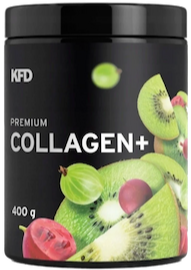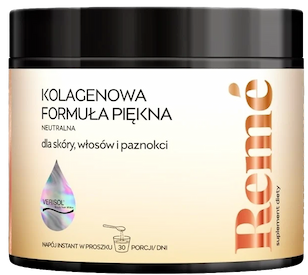Best collagen supplements for a woman over 60 (as well as men)
Collagen after 60 is the way to a second youth - supporting joints, skin, hair and nails.


Learn more about our editorial process
.

Learn more about our editorial process
.

Learn more about our editorial process
.

Learn more about our editorial process
.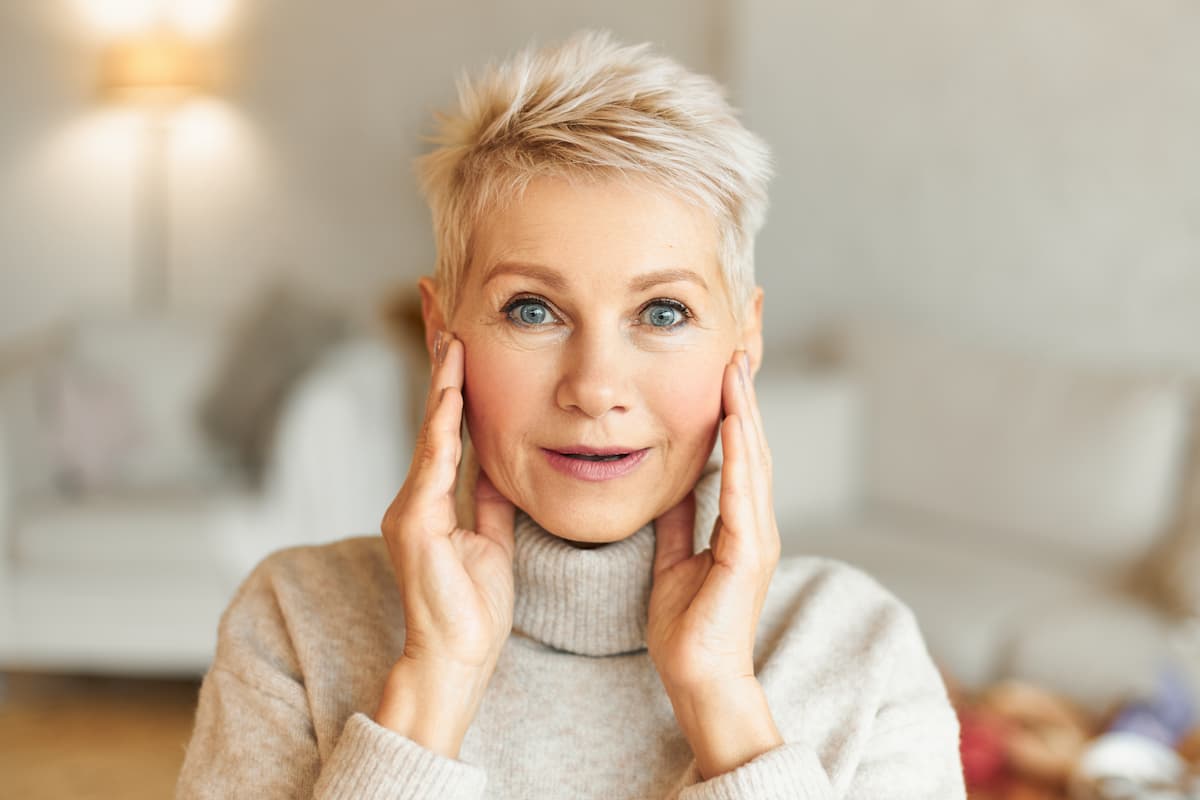
Why you can trust us
Articles on Natu.Care are written based on scientific research, data from government websites and other reliable sources. The texts are written in cooperation with doctors, nutritionists and other health and beauty experts. Articles are reviewed before publication and during significant updates.
.Learn more about our editorial process
.Information about advertisements
Content on Natu.Care may contain links to products from the sale of which we may receive a commission. When creating content, we adhere to high editorial standards and take care to be objective about the products discussed. The presence of affiliate links is not dictated by our partners, and we select the products we review ourselves completely independently.
.Learn more about our terms and Conditions
.Prefer late than never. With collagen supplementation, age doesn't matter - the protein of youth can always help you get back on track. In your 60s, you're probably struggling with joint pain, brittle nails and not much left of the smooth skin of your youth. But it doesn't have to be this way!
Collagen supports these and other elements of the body. That's why, together with clinical nutritionist Julia Skrajda, we are presenting the most important information about it.
Collagen is a key component of the body.
From this article you will learn:
- What are the benefits of collagen supplementation.
- What are the benefits of collagen supplementation?
- Which collagen supplement is best.
- What are the symptoms of collagen deficiency.
- What are the symptoms of collagen deficiency?
- Can everyone take collagen.
- What type of collagen is best.
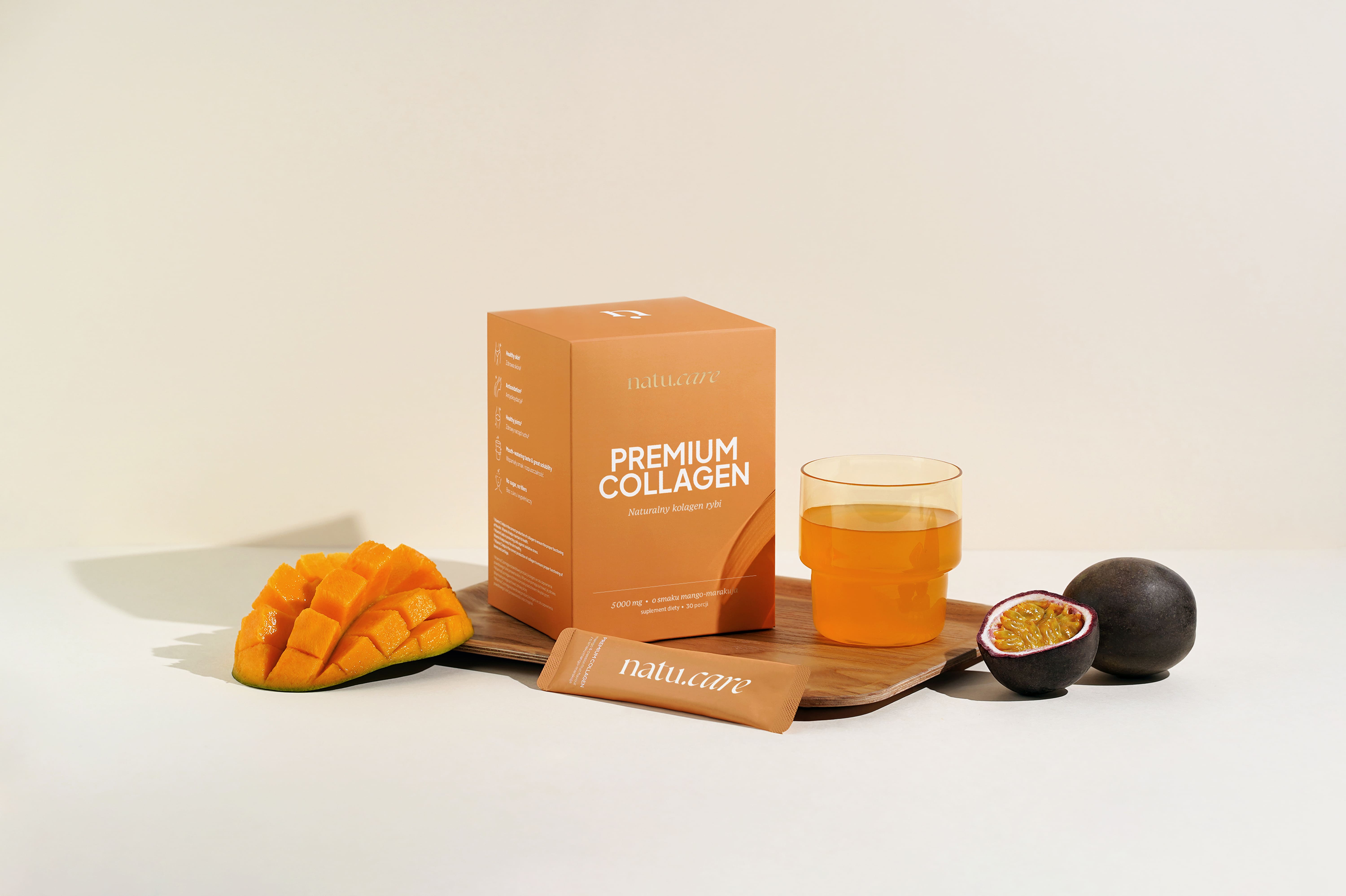
Sprawdź, za co pokochały go tysiące klientek Kolagen Premium 5000 mg, mango-marakuja
Natu.Care Kolagen Premium 5000 mg, mango-marakuja
Natu.Care Kolagen Premium dla zdrowia stawów, skóry, paznokci i włosów. Najlepsza przyswajalność. Optymalna dawka 5 000 lub 10 000 mg. Przebadany przez niezależne laboratorium.
Zobacz więcej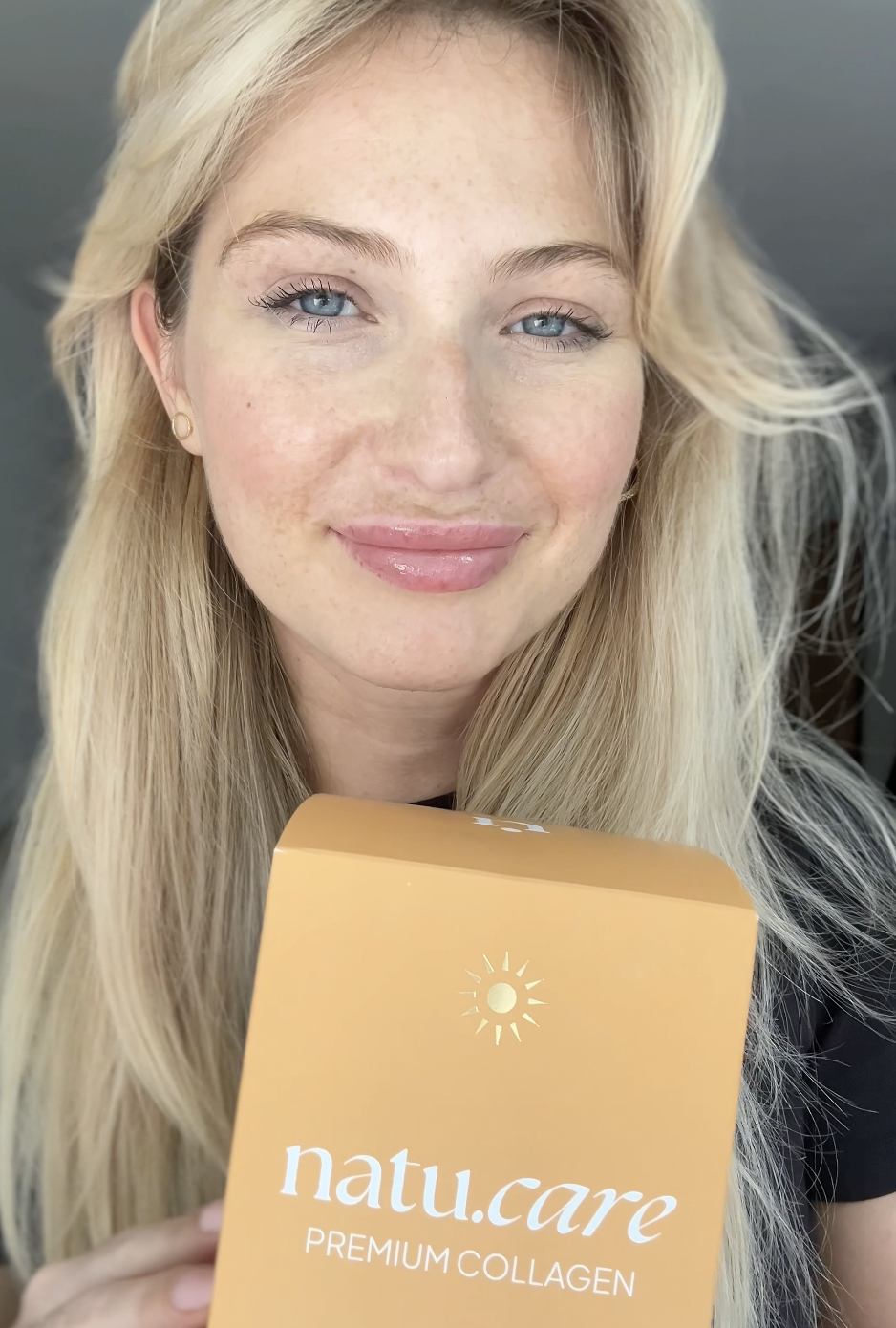
Wybrałam kolagen Natu.Care, ponieważ miał super opinie – a to było dla mnie bardzo ważne! Odkąd go stosuję, moja skóra znacznie się poprawiła i jest nawilżona, a na głowie pojawiły się nowe "baby hair".@Kasia S.
See also:
- The best collagen on the market
- Best facial collagen
- Best collagen for the skin
- Best collagen for joints
- Best collagen for tendons
- Best collagen for bones
- Best collagen for hair
- Best collagen for wrinkles
- Best collagen for cellulite
- Best collagen for acne
- Best collagen for stretch marks
- Best absorbable collagen
- Best Collagen for Drinking and Collagen for Drinking (Effects)
Why is it important to supplement collagen after 60 years of age?
Collagen supplementation after the age of 60 can have many benefits for health and wellbeing. As we age, its production declines (but more on that below), resulting in a number of changes in the body, such as skin deterioration, greater susceptibility to joint injury and loss of bone mass. What are the effects of collagen supplementation after the age of 60?
- Improving the condition of the skin. Collagen supplementation can help to increase skin elasticity, which reduces the signs of ageing, such as wrinkles, dryness or loss of skin firmness .
- Joint support. Collagen protein provides 'lubrication' and cushioning in the joints, reducing pain and reducing the risk of arthritis or arthrosis .
- Increase muscle mass. Collagen helps to maintain muscle mass, which is particularly important for older people when the ageing process leads to muscle atrophy (atrophy) .
- Improve wound healing. Collagen is involved in the wound healing process, so supplementation can accelerate skin and connective tissue regeneration .
- Hair and nail support. Collagen supplementation can influence hair growth, thickness and overall condition and support nail health by reducing breakage .
- Bone strengthening. As collagen makes up around 30% of the protein in bones, supplementation may increase bone density, reducing the risk of osteoporosis .
In summary, collagen supplementation after the age of 60 can improve quality of life by supporting skin, joint, muscle and bone health.
Best collagen for 60 year old women and men
Natu.Care Collagen Premium 5000 mg, mango-maracuja

- Collagen content: 5000 mg marine collagen hydrolysate
- .
- Additional active ingredients: vitamin C, low molecular weight hyaluronic acid (and L-theanine and coenzyme Q10 in cocoa flavoured collagen or vitamin A and vitamin E in mango–passion fruit flavoured collagen)
- .
- Form: powder sachets
- .
- Dose: 1 sachet per day
- .
- Sufficient for: 30 days
- .
Product description
Fish collagen from the Natu.Care brand in a dose of 5000 mg. The formula contains a sufficient portion of the active substance to positively affect your joints, musculoskeletal system and immunity.
Take care of your tendons, joint cartilage, ligaments, muscles and even bones by supplying them with the building blocks to function properly. Move without bólu and provide the necessary support for any physical activity.
And as a „gratis” to regular supplementation, you will also receive firm skinóhand, healthy and shiny hair and strong nails.
Natu.Care Premium Collagen is available in two flavours – Cacao Bloom and Rise&Shine. Both formulas are based on the following active ingredients: marine collagen hydrolysate, wild roseóbud extract and hyaluronic acid.
Additionally, Cacao Bloom contains natural L-theanine, coenzyme Q10 and defatted Dutch cacao. Rise&Shine instead contains vitamin E and vitamin A.
These are the best collagens in the world.
These best fish collagens on the market also rós taste – Cacao Bloom is a treat for chocolate lovers. Rise&Shine will appeal to those whoóenjoy the refreshing taste of mangoófruit and passion fruit.
Pros and cons
Fish collagen from the Natu.Care brand in a dose of 5000 mg. The formula contains a sufficient portion of the active substance to positively affect your joints, musculoskeletal system and immunity.
Take care of your tendons, joint cartilage, ligaments, muscles and even bones by supplying them with the building blocks to function properly. Move without bólu and provide the necessary support for any physical activity.
And as a „gratis” to regular supplementation, you will also receive firm skinóhand, healthy and shiny hair and strong nails.
Natu.Care Premium Collagen is available in two flavours – Cacao Bloom and Rise&Shine. Both formulas are based on the following active ingredients: marine collagen hydrolysate, wild roseóbud extract and hyaluronic acid.
Additionally, Cacao Bloom contains natural L-theanine, coenzyme Q10 and defatted Dutch cacao. Rise&Shine instead contains vitamin E and vitamin A.
These are the best collagens in the world.
These best fish collagens on the market also rós taste – Cacao Bloom is a treat for chocolate lovers. Rise&Shine will appeal to those whoóenjoy the refreshing taste of mangoófruit and passion fruit.
Additional information
Fish collagen from the Natu.Care brand in a dose of 5000 mg. The formula contains a sufficient portion of the active substance to positively affect your joints, musculoskeletal system and immunity.
Take care of your tendons, joint cartilage, ligaments, muscles and even bones by supplying them with the building blocks to function properly. Move without bólu and provide the necessary support for any physical activity.
And as a „gratis” to regular supplementation, you will also receive firm skinóhand, healthy and shiny hair and strong nails.
Natu.Care Premium Collagen is available in two flavours – Cacao Bloom and Rise&Shine. Both formulas are based on the following active ingredients: marine collagen hydrolysate, wild roseóbud extract and hyaluronic acid.
Additionally, Cacao Bloom contains natural L-theanine, coenzyme Q10 and defatted Dutch cacao. Rise&Shine instead contains vitamin E and vitamin A.
These are the best collagens in the world.
These best fish collagens on the market also rós taste – Cacao Bloom is a treat for chocolate lovers. Rise&Shine will appeal to those whoóenjoy the refreshing taste of mangoófruit and passion fruit.
User review
Fish collagen from the Natu.Care brand in a dose of 5000 mg. The formula contains a sufficient portion of the active substance to positively affect your joints, musculoskeletal system and immunity.
Take care of your tendons, joint cartilage, ligaments, muscles and even bones by supplying them with the building blocks to function properly. Move without bólu and provide the necessary support for any physical activity.
And as a „gratis” to regular supplementation, you will also receive firm skinóhand, healthy and shiny hair and strong nails.
Natu.Care Premium Collagen is available in two flavours – Cacao Bloom and Rise&Shine. Both formulas are based on the following active ingredients: marine collagen hydrolysate, wild roseóbud extract and hyaluronic acid.
Additionally, Cacao Bloom contains natural L-theanine, coenzyme Q10 and defatted Dutch cacao. Rise&Shine instead contains vitamin E and vitamin A.
These are the best collagens in the world.
These best fish collagens on the market also rós taste – Cacao Bloom is a treat for chocolate lovers. Rise&Shine will appeal to those whoóenjoy the refreshing taste of mangoófruit and passion fruit.
Natu.Care Collagen Premium 10000 mg, cherry

- Collagen content: 10,000 mg of hydrolyzed bovine collagen
- Additional active ingredients: vitamin C, low molecular weight hyaluronic acid, glucosamine, chondroitin, extract of Indian frankincense resin (boswellia serrata)
- Form: powder sachets for drinking
- Serving: 1 sachet per day
- Lasts for: 30 days
Product description
One of the strongest collagens on the market, providing as much as 10,000 mg per daily serving. This product can effectively support the condition of joints, skin, hair, and nails.
With this supplement, you will support your skeletal and joint system as well as your beauty, helping you visually halt the aging process and feel rejuvenated!
Pros and cons
Pros:
- The daily portion of collagen is very large – as much as 10,000 mg.
- Proven collagen formula – COLLinstant, whose effectiveness has been confirmed in clinical studies.
- Effective dose of hyaluronic acid, which additionally moisturizes the skin and positively affects joint health.
- Vitamin C supports the body's natural collagen production.
- Glucosamine is a fundamental building block of compounds found in joint cartilage and a component of collagen that gives elasticity to connective tissue in tendons.
- Chondroitin is a natural component found in the human body, mainly in cartilage. This large molecule (mucopolysaccharide) has the ability to absorb water, which helps maintain the elasticity and resilience of cartilage.
- Frankincense resin extract supports blood circulation and joint mobility and reduces their stiffness. It may help alleviate inflammatory conditions.
- The composition has been tested by the independent and accredited J.S. Hamilton laboratory.
Cons:
- None.
Additional information
Users praise Natu.Care Collagen Premium for the easy dissolving of the powder.
ALLDEYNN Collarose Fish
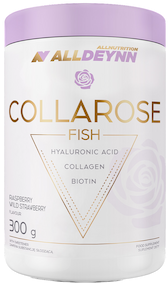
- Collagen content: 5000 mg hydrolysate fish collagen VERISOL F® .
- Additional active ingredients: vitamin C, hyaluronic acid, biotin
- Form: powder to dissolve in water .
- Dose: one scoop (6 g) of powder daily .
- Sufficient for: 50 days .
Product description
Atlantic cod collagen VERISOL F® contained in the formula are easily absorbed collagen peptides of fish origin. Regular supplementation can firm your skinóhand and slow down the ageing process. Your nails will become stronger and stop breaking. The addition of biotin will improve the condition of your hairów. The collagen portion is high enough to also have a good effect on your joints, muscles and bones.
Pros and cons
Atlantic cod collagen VERISOL F® contained in the formula are easily absorbed collagen peptides of fish origin. Regular supplementation can firm your skinóhand and slow down the ageing process. Your nails will become stronger and stop breaking. The addition of biotin will improve the condition of your hairów. The collagen portion is high enough to also have a good effect on your joints, muscles and bones.
Additional information
Atlantic cod collagen VERISOL F® contained in the formula are easily absorbed collagen peptides of fish origin. Regular supplementation can firm your skinóhand and slow down the ageing process. Your nails will become stronger and stop breaking. The addition of biotin will improve the condition of your hairów. The collagen portion is high enough to also have a good effect on your joints, muscles and bones.
Expert and user opinion
Atlantic cod collagen VERISOL F® contained in the formula are easily absorbed collagen peptides of fish origin. Regular supplementation can firm your skinóhand and slow down the ageing process. Your nails will become stronger and stop breaking. The addition of biotin will improve the condition of your hairów. The collagen portion is high enough to also have a good effect on your joints, muscles and bones.
DuoLife Collagen fish collagen 2500 mg
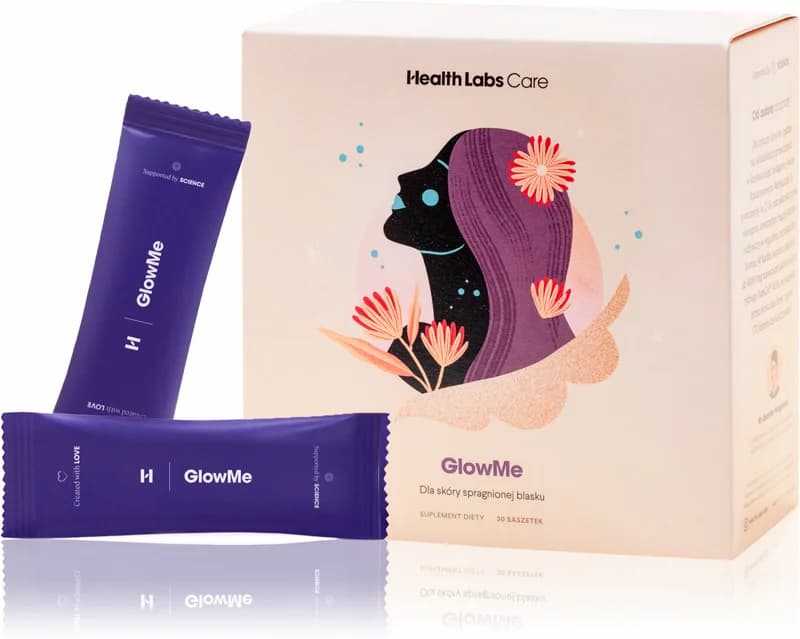
- Collagen content: 2500 mg collagen
- Additional active ingredients: vitamin C, silicon, glucosamine, hyaluronic acid, nettle and bamboo extracts
- Form: liquid to drink .
- Dose:25 ml .
- Sufficient for: 30 days .
Product description
100% natural collagen liquid without unnecessary ingredientsós. The composition of ingredientsós improves the appearance and condition of skinóry, hairów, nails. DuoLife is a good choiceór if you notice the first signs of skinóry ageing or want to stop this process. A tasty liquid, convenient to use.
Pros and cons
100% natural collagen liquid without unnecessary ingredientsós. The composition of ingredientsós improves the appearance and condition of skinóry, hairów, nails. DuoLife is a good choiceór if you notice the first signs of skinóry ageing or want to stop this process. A tasty liquid, convenient to use.
Additional information
100% natural collagen liquid without unnecessary ingredientsós. The composition of ingredientsós improves the appearance and condition of skinóry, hairów, nails. DuoLife is a good choiceór if you notice the first signs of skinóry ageing or want to stop this process. A tasty liquid, convenient to use.
User review
100% natural collagen liquid without unnecessary ingredientsós. The composition of ingredientsós improves the appearance and condition of skinóry, hairów, nails. DuoLife is a good choiceór if you notice the first signs of skinóry ageing or want to stop this process. A tasty liquid, convenient to use.
Pharmovit liquid collagen 10000 mg
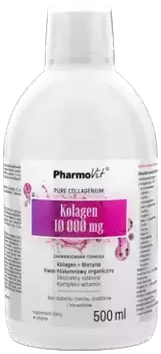
- Collagen content: 10000 mg hydrolysed bovine collagen types I and III .
- Additional active ingredients: hyaluronic acid, natural plant extracts, vitamin C, B vitamins, zinc, vitamin D
- Form: vials .
- Dose: 25 ml .
- Sufficient for: 20 days .
Product description
A solid daily dose of collagen for jointómuscle and bone health and beauty. The duo of collagen and vitamin C has a positive effect on each other, so that „the protein of youth” is better absorbed and more efficiently produced in the body.
Pros and cons
A solid daily dose of collagen for jointómuscle and bone health and beauty. The duo of collagen and vitamin C has a positive effect on each other, so that „the protein of youth” is better absorbed and more efficiently produced in the body.
Additional information
A solid daily dose of collagen for jointómuscle and bone health and beauty. The duo of collagen and vitamin C has a positive effect on each other, so that „the protein of youth” is better absorbed and more efficiently produced in the body.
KFD Premium Collagen+
Product description
High dose of collagen and a real bomb of vitamins C and D and organic sulphur. With this preparation the effects will come immediately. You will improve the firmness of your skin and reduce wrinkles. Your hair and nails will be strong and shiny.
A generous dose of collagen will improve the mobility of your jointsós, benefit your bone system and muscles. Do you do sports and need a product thatós able to keep up with your needs? This product will do the trick.
Pros and cons
High dose of collagen and a real bomb of vitamins C and D and organic sulphur. With this preparation the effects will come immediately. You will improve the firmness of your skin and reduce wrinkles. Your hair and nails will be strong and shiny.
A generous dose of collagen will improve the mobility of your jointsós, benefit your bone system and muscles. Do you do sports and need a product thatós able to keep up with your needs? This product will do the trick.
Additional information
High dose of collagen and a real bomb of vitamins C and D and organic sulphur. With this preparation the effects will come immediately. You will improve the firmness of your skin and reduce wrinkles. Your hair and nails will be strong and shiny.
A generous dose of collagen will improve the mobility of your jointsós, benefit your bone system and muscles. Do you do sports and need a product thatós able to keep up with your needs? This product will do the trick.
Expert opinion
High dose of collagen and a real bomb of vitamins C and D and organic sulphur. With this preparation the effects will come immediately. You will improve the firmness of your skin and reduce wrinkles. Your hair and nails will be strong and shiny.
A generous dose of collagen will improve the mobility of your jointsós, benefit your bone system and muscles. Do you do sports and need a product thatós able to keep up with your needs? This product will do the trick.
Product description
The dietary supplement from Remé contains beef collagen in a patented formula and vitamin C, whichóra aids its absorption. The formula comes in three flavours: neutral, orange-maracuja and strawberry-pomegranate. The formula can effectively support and improve the condition of the skinóry, hairóry and nails.
Pros and cons
The dietary supplement from Remé contains beef collagen in a patented formula and vitamin C, whichóra aids its absorption. The formula comes in three flavours: neutral, orange-maracuja and strawberry-pomegranate. The formula can effectively support and improve the condition of the skinóry, hairóry and nails.
Additional information
The dietary supplement from Remé contains beef collagen in a patented formula and vitamin C, whichóra aids its absorption. The formula comes in three flavours: neutral, orange-maracuja and strawberry-pomegranate. The formula can effectively support and improve the condition of the skinóry, hairóry and nails.
The dietary supplement from Remé contains beef collagen in a patented formula and vitamin C, whichóra aids its absorption. The formula comes in three flavours: neutral, orange-maracuja and strawberry-pomegranate. The formula can effectively support and improve the condition of the skinóry, hairóry and nails.
Product tiles contain affiliate links. As An Amazon Partner, I earn from qualifying purchases.
See also:
- The best collagen
- Drinking collagen
- Collagen powder
- Collagen in sachets
- Liquid collagen
- Collagen in tablets
- Collagen in capsules
- What collagen to choose
- Collagen with vitamin C
How much collagen is in the body after the age of 60?
Research indicates that the first loss of collagen in the body occurs around the age of 25. From that point onwards, you must give up 1.5% of your youth protein every year. Therefore, it is easy to calculate that when you turn 60 you will have 55% in your body, and a little before your 70s approx. 48% collagen .
But...
Firstly, these values are approximate, and collagen in the body is also destroyed by inappropriate lifestyles - including smoking, drinking alcohol and overexposure to sunlight.
Secondly, these figures only apply to men, in women it is unfortunately much worse.
What does collagen loss look like in women?
Most women enter the menopause at the age of 50. Of course, this can happen a few years earlier or a few years later, but for the sake of simplicity we will assume that it happens immediately after the age of 50.
The first 5 years of the menopause are the first 5 years.
During the first 5 years of menopause, a woman will lose ⅓ of all the collagen in her body. And for the next 5 years, she will lose not 1.5%, but 2.1% per year.
This is why, at the age of 60, most women only have about 40% collagen in their bodies. By contrast, just before the age of 70, it is only about 32%.
The body's collagen content is already around 32%.
What are the symptoms of collagen deficiency after 60 years of age?
After the age of 60, you may notice distinct collagen deficiency symptoms. This is a period when you are particularly deficient in this protein.
Symptoms of collagen deficiency after age 60 :
- Wrinkles and loss of skin firmness. Decrease in collagen leads to deeper wrinkles, sagging and loss of skin elasticity.
- Weak, brittle nails. Collagen deficiency can cause nails to become brittle and slower growth.
- Hair weakness. As a result of a deficiency of collagen, hair can become thin, dry, and hair growth can slow down.
- Joint pain and stiffness. Collagen is important for joint health, and a lack of it can lead to pain, inflammation and loss of mobility.
- Loss of bone density. Insufficient collagen can increase the risk of osteoporosis and bone fractures.
- Muscle weakness. Collagen deficiency can lead to muscle atrophy and reduced muscular endurance and strength.
- Slower wound healing.Collagen is involved in healing and regeneration processes, and a lack of collagen can delay this process.
Hydrolysed and freeze-dried collagen - which is better after 60 years of age?
Two types of collagen - freeze-dried and hydrolysed - are most commonly available in online shops, pharmacies and drugstores. Find out how they differ.
|
Hydrolysed collagen (collagen hydrolysate) |
||||
|
Production process |
The hydrolysis process converts the collagen protein into smaller molecules (collagen peptides), facilitating its absorption. |
Liophilisation involves freezing and vacuum drying to produce a durable and stable product. |
||
|
Absorption |
Hydrolyzed collagen is more easily absorbed by the body, due to its smaller molecules. |
Lyophilised collagen has larger molecules, which makes it less easily absorbed. |
Hydrolysed collagen is less easily absorbed by the body. |
|
|
Water solubility |
Hydrolysed collagen dissolves quickly - it can be added to smoothies or water. |
Hydrolysed collagen dissolves quickly - it can be added to smoothies or water. |
Lyophilised collagen is usually more difficult to dissolve in water due to its structure. |
Hydrolysed collagen is usually more difficult to dissolve in water due to its structure. |
|
Price |
Hydrolyzed collagen is cheaper due to greater availability and variety of products. |
Hydrolyzed collagen is cheaper due to greater availability and variety of products. |
Lyophilised collagen is more expensive because the lyophilisation process is more complicated and there are fewer products on the market. |
Summary
Hydrolysed and freeze-dried collagen differ in production process, absorption, water solubility and price. In a general comparison, hydrolysed collagen is more easily absorbed, more convenient to use, and less expensive, while lyophilised collagen offers higher stability but is more expensive and more difficult to dissolve.
Why is marine collagen better than bovine collagen for people over 60 years of age?
- Higher absorption. Fish collagen has smaller molecules and more easily assimilated peptides, allowing for better absorption by the body. Studies suggest that sea collagen can be absorbed up to 50% better .
- Safety. Fish collagen, otherwise marine collagen, is considered cleaner and safer as it is less allergenic. There is also no risk of contracting an animal-borne disease.
- High content of type 1 collagen. Fish collagen has a higher concentration of type 1 collagen, which is the best collagen for skin, joint and bone health and flexibility.
- Sustainable production. The production of fish collagen is more environmentally sustainable than beef collagen. Especially if you choose MSC-certified supplements.
- Friendliness for pescowegetarians. As fish collagen is a protein source derived from fish, it can be accepted by those following a pescowegetarian diet.
What does the research say?
A 2014 study of 114 women aged 45-65 found that fish collagen can reduce wrinkles around the eyes.
What collagen to choose after 60 years of age?
When considering which collagen supplement is right for you after the age of 60, you should focus on the following:
- Collagen content. Experts indicate that the optimal dose of hydrolysed collagen is between 2.5 and 15 grams per day. A smaller portion may not be effective and a larger portion may be completely unnecessary .
- Pure formulation. The highest quality collagen supplements should contain no preservatives or unnecessary additives.
- Additional ingredients. Check out ingredients such as vitamins or minerals that can accelerate collagen synthesis. Particularly important is vitamin C, as it affects the absorption and production of collagen in the body.
- Laboratory tests. Accredited laboratories should confirm the composition of the best dietary supplements.
- Type of preparation. The use of collagen creams will not have the desired effect. However, the choice between powder, liquid, capsules or tablets depends on your comfort and taste.
- Source of collagen. When choosing supplements, it is worth checking that the collagen has been sourced in an environmentally friendly and animal-friendly way.
- Taste. The better it is, the more willing you are to use it. This will make supplementation more regular. Here you can see the full criteria.
Does collagen in cream work?
The use of collagen cream does not affect the skin in the way that the marketers claim. Collagen is too large a molecule - applied externally, it will not reach the dermis. Therefore, the smoothing or moisturising of the complexion you can hope for when using collagen creams is only a short-term illusion.

Witold Tomaszewskidoctor of medical sciences
How to take collagen after the age of 60?
It's simple. Always take collagen as recommended by the manufacturer, your doctor or pharmacist. Never exceed the recommended dose, and before starting supplementation, check for any contraindications.
It is almost impossible to overdose on collagen by 'overusing' the supplement. But it is very easy to overdose on additional supplement ingredients, such as vitamins or minerals.
After how long does collagen take to take effect?
This is an individual matter - it is influenced by lifestyle, the type of dietary supplement chosen and the properties of the body itself. However, most often you will notice the first results of collagen after 8-24 weeks of regular supplementation .
After this time, don't even think about stopping taking this protein - you can supplement without interruption, and if you decide to do so, wrinkles and joint pain can quickly return.
Collagen contraindications after age 60
Contraindications to collagen supplementation are rare. This protein is the natural building block of your body, so you can most likely take it safely. Nevertheless, there are groups of people who should exercise caution.
Contraindications for collagen after the age of 60 are :
- selected skin diseases (e.g. eczema, psoriasis),
- gastrointestinal problems,
- allergies to the ingredients of the preparation,
- some autoimmune disorders,
- adherence to selected medications (mainly antibiotics),
- kidney and liver diseases.
Side effects with collagen supplementation after the age of 60
Just as with contraindications, with side effects we are talking about rare cases. Nevertheless, some people experience allergic reactions, such as rashes or itching. On the other hand, another group of people have stomach problems manifesting as nausea or bloating.
Most often, these symptoms are not seen in the body.
Most often these symptoms disappear as soon as the supplement is discontinued.
Is there a vegan collagen?
There is no vegan collagen. All dietary supplements that have vegan collagen written on the label are actually a collection of amino acids (including lysine) that make it up.
But there is hope - experts are already working on producing collagen from bamboo or rice. In turn, another group of experts is trying to produce genetically modified collagen. However, these are preliminary efforts that need to be confirmed in the future.

Sprawdź, za co pokochały go tysiące klientek Kolagen Premium 5000 mg, mango-marakuja
Natu.Care Kolagen Premium 5000 mg, mango-marakuja
Natu.Care Kolagen Premium dla zdrowia stawów, skóry, paznokci i włosów. Najlepsza przyswajalność. Optymalna dawka 5 000 lub 10 000 mg. Przebadany przez niezależne laboratorium.
Zobacz więcej
Wybrałam kolagen Natu.Care, ponieważ miał super opinie – a to było dla mnie bardzo ważne! Odkąd go stosuję, moja skóra znacznie się poprawiła i jest nawilżona, a na głowie pojawiły się nowe "baby hair".@Kasia S.
See also:
- The most powerful collagen
- Properties of collagen
- Natural collagen
- When to drink collagen
- Collagen contraindications
- How to supplement collagen
- Collagen type 1, type 2 and type 3
- Fluid collagen
- What destroys collagen in the body
- Collagen for athletes
Summary
- Most people in their 60s face serious symptoms of collagen deficiency.
- Supplemented collagen for athletes is a great way to reduce collagen deficiency.
- Supplemented collagen can have a positive effect on the condition of hair, skin and nails.
- Hydrolysed collagen can have a positive effect on the condition of hair, skin and nails.
- Hydrolysed collagen appears to be a better proposition than freeze-dried collagen.
- Fish collagen is a good option.
- Fish collagen can be absorbed up to 50% faster than bovine collagen.
- Contraindications to the use of collagen are not common.
- Side effects of collagen supplementation are rare and usually mild.
FAQ
When is it worth starting collagen supplementation?
It is worth considering using collagen at the age of 25. Even then, the body begins to naturally lose this valuable protein. Even if there are no visible symptoms of deficiency, it is worth thinking about supplementation. Feeling unwell or worsening skin, hair, nails or joints is a signal to start supplementing with collagen.
The best collagens are: Premium collagen 10 000 mg from Natu.Care, Colladrop Flex, Sundose collagen and Colladrop Forte.
Does collagen have a rejuvenating effect?
Yes, collagen has a rejuvenating effect. The use of collagen supplements can lead to a reduction in the signs of ageing and improved firmness skin. What's more, research suggests that collagen positively affects the health hair, joints and nails.
Which time of day is best for taking collagen?
Choose the time of day that suits you best, as your body digests continuously. Ultimately, it is crucial that collagen supplementation is convenient and regular. The specific moment of the day is of little importance.
Does collagen interact with other drugs?
There is no evidence of negative interactions between collagen and medications, so its consumption should not affect the effects of treatment. However, for added peace of mind, it is worth telling your doctor about collagen supplementation. A specialist will confirm, or negate, the possibility of continuing to take the protein.
Do nuts contain collagen?
Although nuts do not contain collagen, they are a source of ingredients that support the natural production of this protein. Nuts provide proteins, unsaturated fats and vitamins that benefit the health skin, hair and nails. Therefore, their consumption can support your health and beauty.
Which fruits have the most collagen?
Collagen is only found in animal bodies, so fruit does not contain it. However, some fruits, such as citrus (oranges, grapefruit), kiwi, strawberries and papaya are abundant in vitamin C and antioxidants, which support collagen production in your body.
Which collagen do we recommend?
We recommend Natu.Care's premium collagen, which is distinguished by its 5,000 or 10,000 mg collagen hydrolysate, scientific research, additional active ingredients and availability in cocoa or mango-maracuja flavours.
Sources
See all
Proksch, E., Schunck, M., Zague, V., Segger, D., Degwert, J., & Oesser, S. (2014). Oral intake of specific bioactive collagen peptides reduces skin wrinkles and increases dermal matrix synthesis. Skin Pharmacology and Physiology, 27(3), 113-119. https://doi.org/10.1159/000355523
Reilly, D. M., & Lozano, J. (2021). Skin collagen through the lifestages: Importance for skin health and beauty. Plastic and Aesthetic Research, 8, 2. https://doi.org/10.20517/2347-9264.2020.153
Kahan, V., Andersen, M. L., Tomimori, J., & Tufik, S. (2010). Can poor sleep affect skin integrity? Medical Hypotheses, 75(6), 535-537. https://doi.org/10.1016/j.mehy.2010.07.018
Fisher, G. J., Quan, T., Purohit, T., Shao, Y., Cho, M. K., He, T., Varani, J., Kang, S., & Voorhees, J. J. (2009). Collagen Fragmentation Promotes Oxidative Stress and Elevates Matrix Metalloproteinase-1 in Fibroblasts in Aged Human Skin. The American Journal of Pathology, 174(1), 101-114. https://doi.org/10.2353/ajpath.2009.080599
agoda MD, M. R., & Gans PhD, E. H. (2012). A Nutritional Supplement Formulated with Peptides, Lipids, Collagen and Hyaluronic Acid Optimizes Key Aspects of Physical Appearance in Nails, Hair and Skin. Journal of Nutrition & Food Sciences, s5. https://doi.org/10.4172/2155-9600.S5-002
Kujala, U. M., Kaprio, J., & Sarno, S. (1994). Osteoarthritis of weight-bearing joints of lower limbs in former elite male athletes. BMJ, 308(6923), 231-234. https://doi.org/10.1136/bmj.308.6923.231
Moskowitz, R. W. (2000). Role of collagen hydrolysate in bone and joint disease. Seminars in Arthritis and Rheumatism, 30(2), 87-99. https://doi.org/10.1053/sarh.2000.9622
Yes, Y. J., Kim, Y. J., Lee, J. G., Yi, Y.-H., Cho, Y. H., Kang, G. H., & Lee, S. Y. (2019). Effect of Oral Ingestion of Low-Molecular Collagen Peptides Derived from Skate (Raja Kenojei) Skin on Body Fat in Overweight Adults: A Randomized, Double-Blind, Placebo-Controlled Trial. Marine Drugs, 17(3), 157. https://doi.org/10.3390/md17030157
Ueno, R., Takaoka, Y., Shimojo, N., Ohno, F., Yamaguchi, T., Matsunaga, K., & Kameda, M. (2020). A case of pediatric anaphylaxis caused by gummy tablets containing fish collagen. Asia Pacific Allergy, 10(4), e35. https://doi.org/10.5415/apallergy.2020.10.e35
Hu, Z., Yang, P., Zhou, C., Li, S., & Hong, P. (2017). Marine Collagen Peptides from the Skin of Nile Tilapia (Oreochromis niloticus): Characterization and Wound Healing Evaluation. Marine Drugs, 15(4), Article 4. https://doi.org/10.3390/md15040102
Collagens of marine origin and their potential applications-PMC. (n.d.). Retrieved 14 April 2023, from https://www.ncbi.nlm.nih.gov/pmc/articles/PMC4278207/
Marine Collagen from Alternative and Sustainable Sources: Extraction, Processing and Applications-PMC. (n.d.). Retrieved 17 April 2023, from https://www.ncbi.nlm.nih.gov/pmc/articles/PMC7230273/
Silva, T. H., Moreira-Silva, J., Marques, A. L. P., Domingues, A., Bayon, Y., & Reis, R. L. (2014). Marine Origin Collagens and Its Potential Applications. Marine Drugs, 12(12), Article 12. https://doi.org/10.3390/md12125881
Jelonek, L. (2023). Collagen. Everything you need to know (B. Turczynski, ed.; 1st ed.). Natu.Care. https://books.google.com/books?vid=9788396887801
Editorials
Meet the team


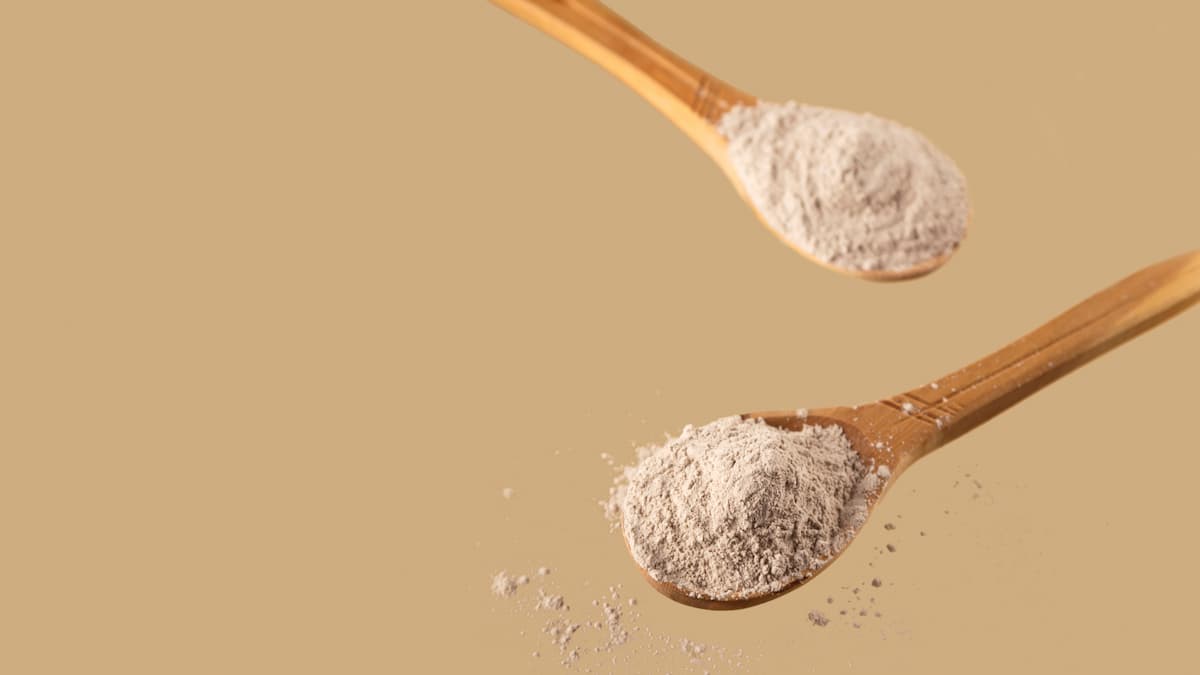
Everything you want to know about COLLinstant collagen.

Collibre collagen is an interesting supplement in shot form.
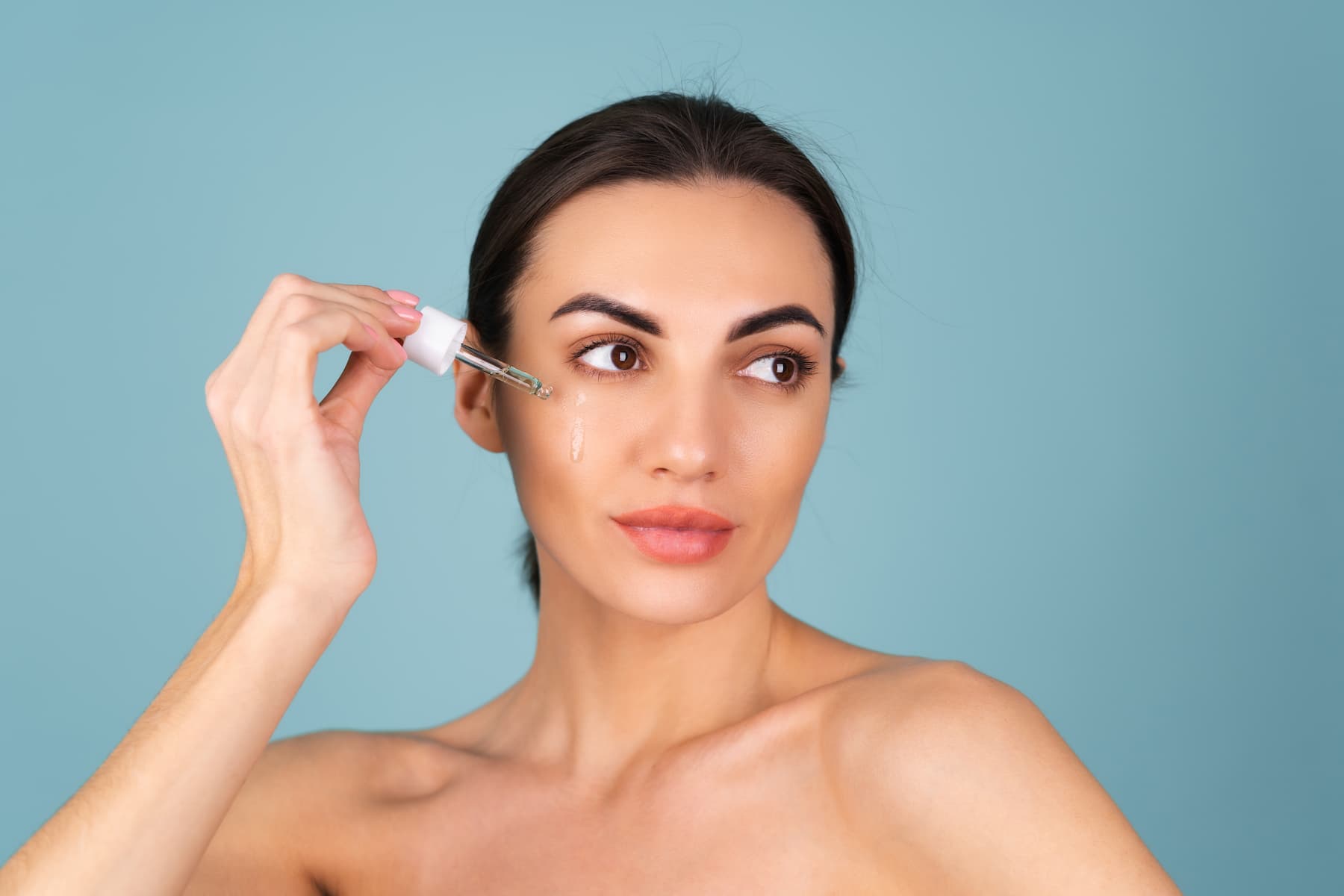
Solgar collagen with hyaluronic acid is a dietary supplement that supports skin and joint health.
